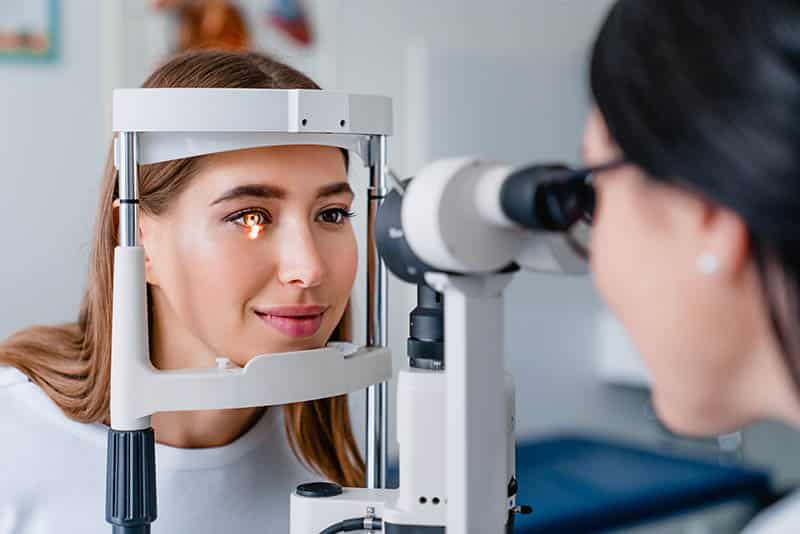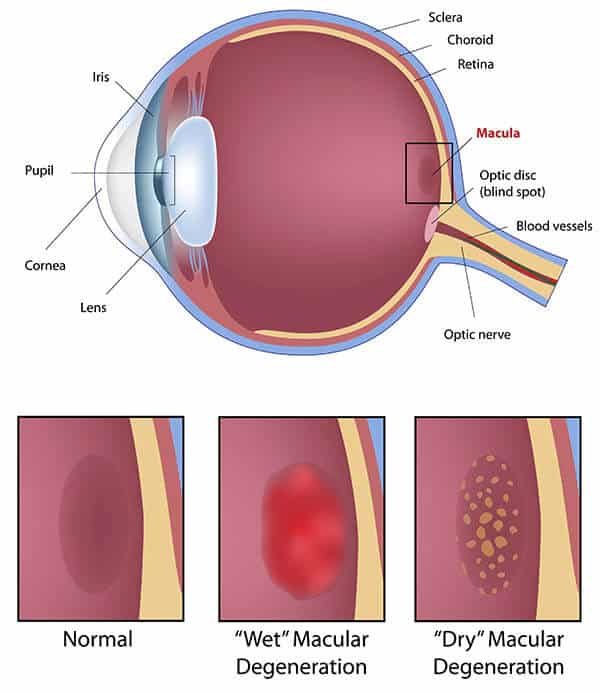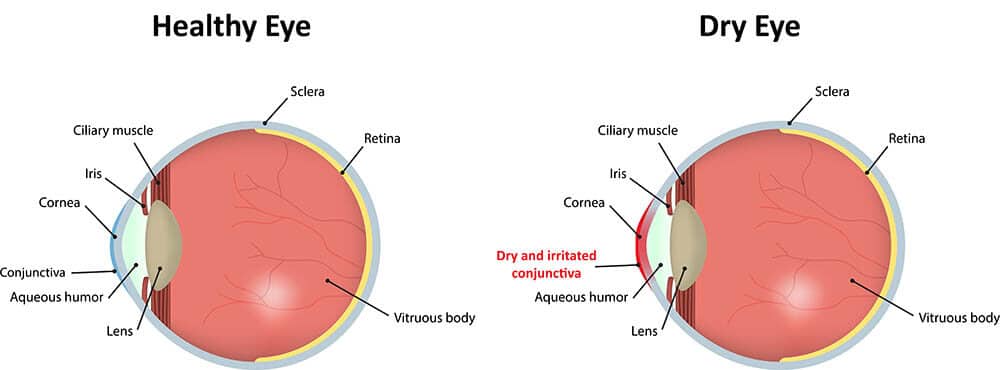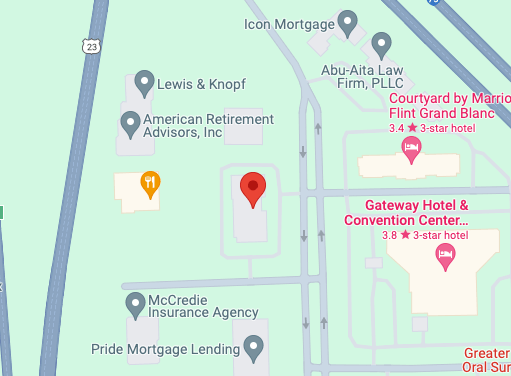Comprehensive Eye Care
At Michigan Vision, we are dedicated to helping residents of Flint and all of Genesee Country maintain healthy eyes and clear vision. In addition to our advanced surgical services, we also offer routine eye care, comprehensive eye exams, glasses, and contact lenses.
Why are regular annual eye exams important?
Detecting many serious yet treatable eye problems early is crucial for successful treatment. For example when people develop glaucoma, most people never experience symptoms until the eyes have suffered significant damage.
Thankfully, comprehensive eye exams can easily identify early signs of glaucoma, allowing your eye doctor to formulate a treatment strategy to and prevent vision loss. Other conditions, such as presbyopia, diabetic retinopathy, and macular degeneration, can also be identified through such exams.
For individuals who wear glasses or contact lenses, it is essential to undergo yearly vision checks to confirm the accuracy of their prescription.

How long does a comprehensive eye exam take?
We recommend planning for a 2 hour visit for an adult, and 2.5 hours for a child eye exam. In addition to checking the vision, pressure, and glasses prescription, we also will complete a thorough dilated exam to check your retina and optic nerves for any signs of problems.

How can diabetes affect my eyes?
When the blood vessels in the eye are exposed to high levels of sugar, over time they accumulate damage. As the blood vessels get damaged, diabetic retinopathy can develop. During your exam, our doctors carefully examine the retina for signs of bleeding, retinal detachments, or dangerous blood vessel growth which can lead to vision threatening issues. If found early, diabetic retinopathy can be treated with eye specific interventions, in addition to full body blood sugar control, to help avoid vision loss.
What is diabetic retinopathy?
Diabetic retinopathy is a diabetes-related complication that affects the eyes. It occurs when high levels of blood sugar damage the blood vessels in the retina, the light-sensitive tissue at the back of the eye. Over time, this damage can cause the blood vessels to leak fluid or bleed, leading to vision problems and potentially even blindness if left untreated. There are two main stages of diabetic retinopathy: non-proliferative diabetic retinopathy (NPDR), which involves the early stage of the disease characterized by the weakening of blood vessels, and proliferative diabetic retinopathy (PDR), which occurs when new, abnormal blood vessels start to grow on the surface of the retina. Diabetic retinopathy can cause symptoms such as blurred vision, floaters, and even complete vision loss if not managed properly. Regular eye exams and proper management of diabetes are essential for preventing and treating diabetic retinopathy.
What is age-related macular degeneration?
Age-related macular degeneration (AMD) stands as the primary culprit behind visual impairment and legal blindness in individuals aged 50 and above. This condition arises from the deterioration of the central part of the retina, known as the macula, which serves as the eye’s high-sensitivity area akin to the film in a camera, capturing detailed images. The macula plays a crucial role in facilitating tasks like driving, reading fine print, and recognizing faces. Macular degeneration manifests in two forms: dry and wet.
What is the difference between dry and wet AMD?
Dry macular degeneration, also referred to as atrophic age-related macular degeneration, stems from the natural aging process and thinning of the macular region, akin to the thinning of skin with age. The dry form constitutes the majority of macular degeneration cases, with vision loss progressing gradually.
On the other hand, wet macular degeneration, also known as exudative age-related macular degeneration, represents a more advanced stage, accounting for roughly 10% of all cases. In this variant, abnormal blood vessels proliferate at the rear of the eye. These vessels may sometimes leak blood or fluid, leading to blurred or distorted vision. Without intervention, visual deterioration can be swift and severe.
What are the treatments for AMD?
The precise cause of macular degeneration remains unknown, and as of now, there exists no cure. For people with dry AMD, vitamin supplementation with AREDS2 vitamins has demonstrated efficacy in slowing the progression of AMD. In cases of wet AMD, your physician might recommend intraocular injections of medication or laser therapy.

What is dry eye syndrome?
Dry eye syndrome is a common condition affecting millions worldwide, characterized by insufficient tear production or poor tear quality. This condition can lead to discomfort, irritation, and even vision disturbances if left untreated. Understanding the causes, symptoms, and available treatments for dry eye is crucial for managing this condition effectively. From lifestyle adjustments to advanced medical interventions, there are various options to alleviate dry eye symptoms and improve overall eye health.

What causes dry eye syndrome?
Symptoms of dry eye can vary from mild to severe, and may include sensations of grittiness, redness, excessive tearing, and sensitivity to light. Factors such as aging, prolonged screen time, environmental conditions, and certain medications can contribute to the development of dry eye. It’s essential to consult with an eye care professional for accurate diagnosis and personalized treatment plans tailored to individual needs. By addressing underlying causes and implementing targeted therapies, individuals can experience relief and better quality of life.
What are the treatments for dry eye?
Managing dry eye often requires combining both preventive measures and therapeutic interventions. Simple lifestyle changes like staying hydrated, taking breaks during prolonged screen use, and avoiding environments with high levels of air pollution or dry air can help alleviate symptoms. Additionally, using over-the-counter artificial tears, placing punctal plugs, or using prescription medications, may provide relief. By prioritizing eye health and seeking appropriate care, individuals can effectively manage dry eye and maintain clear, comfortable vision.

